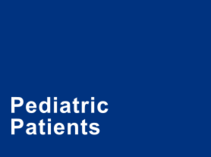Medical Services | Patient Information
CCI provides clinical and laboratory services to paediatric and adult patients in the areas of infectious diseases, immunology, haematology and stem cell transplantation.
What is Immunodeficiency and how does it develop?
The most common clinical presentation of immunodeficiency is an increased susceptibility to infections. Frequent, persistent or unusual infections can be an indication of a problem in the immune system. These infections might be common colds that occur more often or more severely than in the average person. Or they could be life-threatening illnesses like pneumonia, meningitis, liver infections or abscesses. Immunodeficiency also often presents with periodic fever attacks, swelling of glands and spleen, granulomas, inflammatory bowel diseases or different autoimmune illnesses as a result of problems with immune regulation.
Often an immunodeficiency is a result of a genetic defect, i.e., is a congenital (inborn) disease. That does not mean that just children are affected. Research in Freiburg has been important in showing that immunodeficiencies that first present in adults can also be due to a genetic defect. Other types of immunodeficiency are caused by certain infections - the most important example here is HIV. More common forms of chronic immunodeficiency can also occur as a result of immunosuppressive therapy required to treat certain illnesses. Advances in cancer therapy or transplantation medicine are increasingly being limited by immunodeficiency, a side-effect of these treatments.
You can find detailed patient information here!
How can an immunodeficiency be diagnosed?
The immune system is not located within one organ, instead cells of the immune system can be found all over the body. These cells can be measured in a blood sample and their ability to function properly can be analysed in laboratory tests. In addition, microscopic analysis of blood, bone marrow and lymph nodes can yield important information. Often genetic analysis is necessary to determine a specific immunodeficiency. New tests are regularly being developed as a result of new information from research on the immune system. CCI has set up a state-of-the-art Diagnostics Unit that keeps up to date with new developments in research within the CCI and that can set up new tests to diagnose immunodeficiency. Even with all the new techniques, however, the most important aspect of diagnosis is still the medical examination of the patient and careful documentation of his case history.
Is it possible to do anything against immunodeficiency diseases?
An exact classification of the type of immunodeficiency can be a help in determining the type of infections for which a patient is at a high risk. These can be prevented by prophylactic treatment with specific medication. Antibody substitution can also provide a basic level of protection against infection. Medication that stimulates immune cells or in the case where regulation is faulty or incorrect can suppress or destroy the bad cells is also available. However this type of medications needs to be used with great care by experts. In addition, stem cell transplantation is an option for primary immunodeficiency patients. Here healthy immune cells can replace poorly functioning ones. Other treatments involving cells, including gene therapy are in the process of being developed for immunodeficiency.





